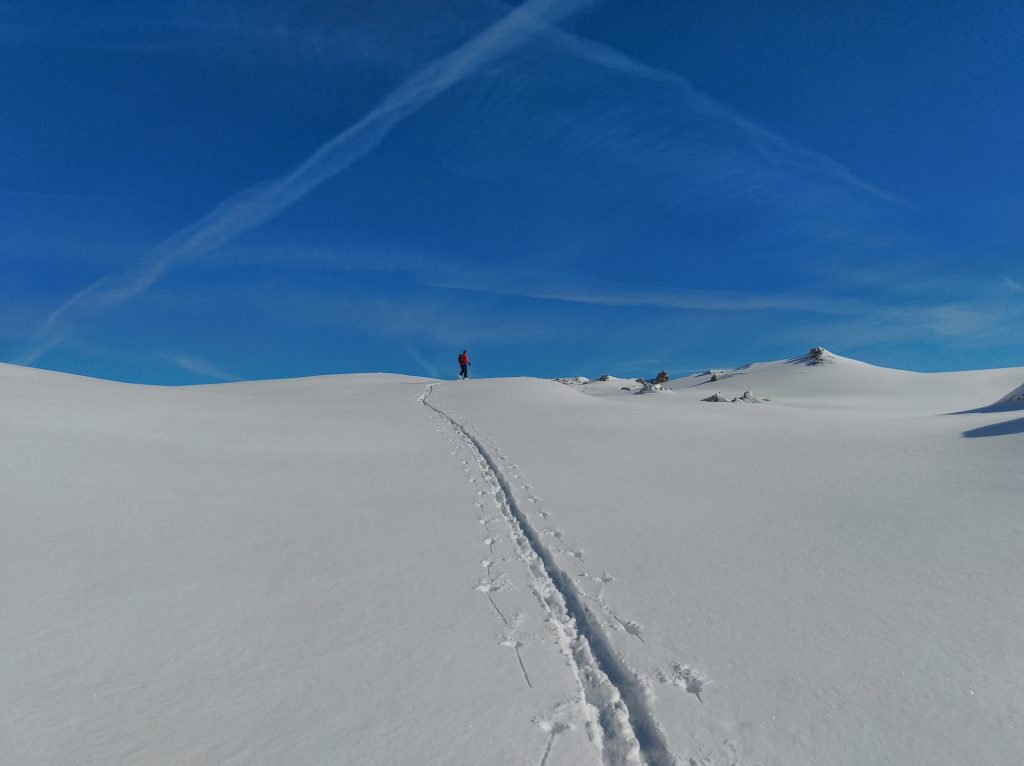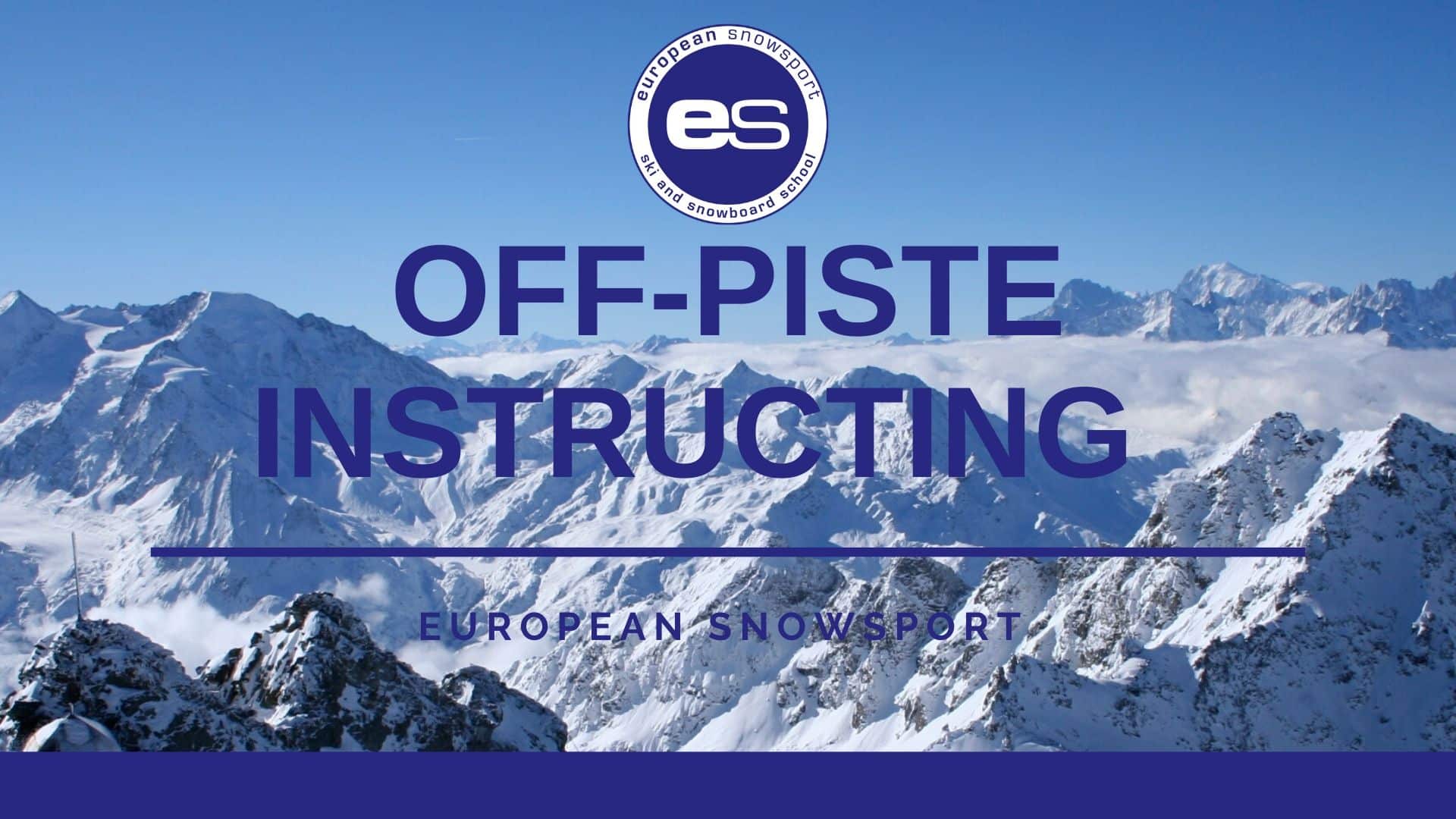
Anthony Voute grew up in the mountains and has been based in Verbier for over 15 years. He has been a fully qualified off piste instructor for 12 years. He teaches both ski and snowboard and is equally happy with his touring skis or splitboard. We interviewed him to find out what life is really like, day to day, as an off-piste instructor.
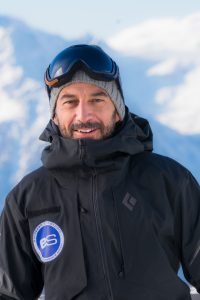
„There are not many jobs where you can live out your career and your passion in such a beautiful environment. There is a unique energy about being in the mountains and you can share this with your clients.“
Typical day of an off-piste Instructor:
Night before – check avalanche report
7am – team brief about day
8am –check gear
9am – brief clients/safety talk
„The night before I make contact with my clients to find out what they would like to achieve and what their goals are for the day ahead. Are they looking for an introduction to off piste, or to improve their technique, or discover new areas?
I check different websites for weather, and if I haven’t been to the area I am planning to visit the next day for a few days, or the conditions are changing, I call some friends who work with the ski patrol or someone who went to that area the same day to talk to them about conditions. Usually I visit areas I already know well so I don’t need to check the maps or the slope gradient but I always check the changing conditions.
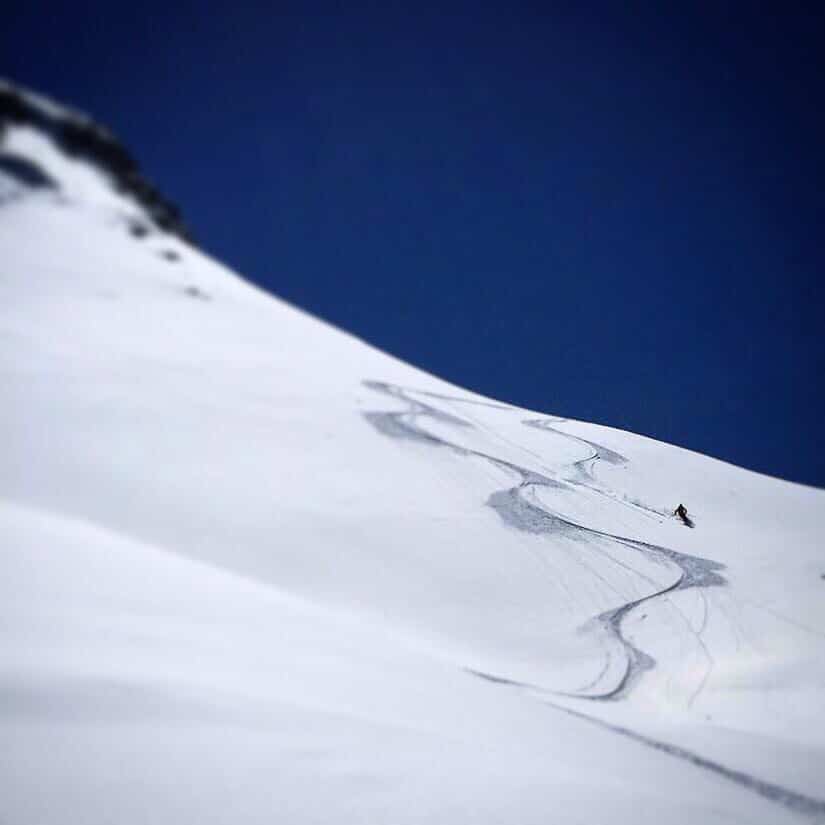
On the day, I meet with my clients and talk to them about their goals and expectations. We ski a piste together so I can see how they ski. I check everyone’s avalanche transceiver is working properly and that they have their off piste pack and do a briefing. I check the snow conditions and then we do some easily accessible off piste so I can see how they handle the conditions.
We then head off. I always have a plan B for if conditions change. For example, if it is cloudy we might stay in the trees for better visibility. I am also looking out for things like whether a member of the group is getting tired.
Just before we ski an off piste area, I verify the state of the snow and we ski one by one. We establish where to regroup after each ski. On each slope I need to consider what the consequences are if for example someone falls; they might slide, or they might stop safely.
Our goal is always to have fun safely. So I communicate all the time and check that everyone is comfortable and happy. It is important that the clients understand that I am the leader and respect my judgment and this is one of the things we learn in our off piste training; how to lead the group and also how to turn back when it is the right thing to do.“
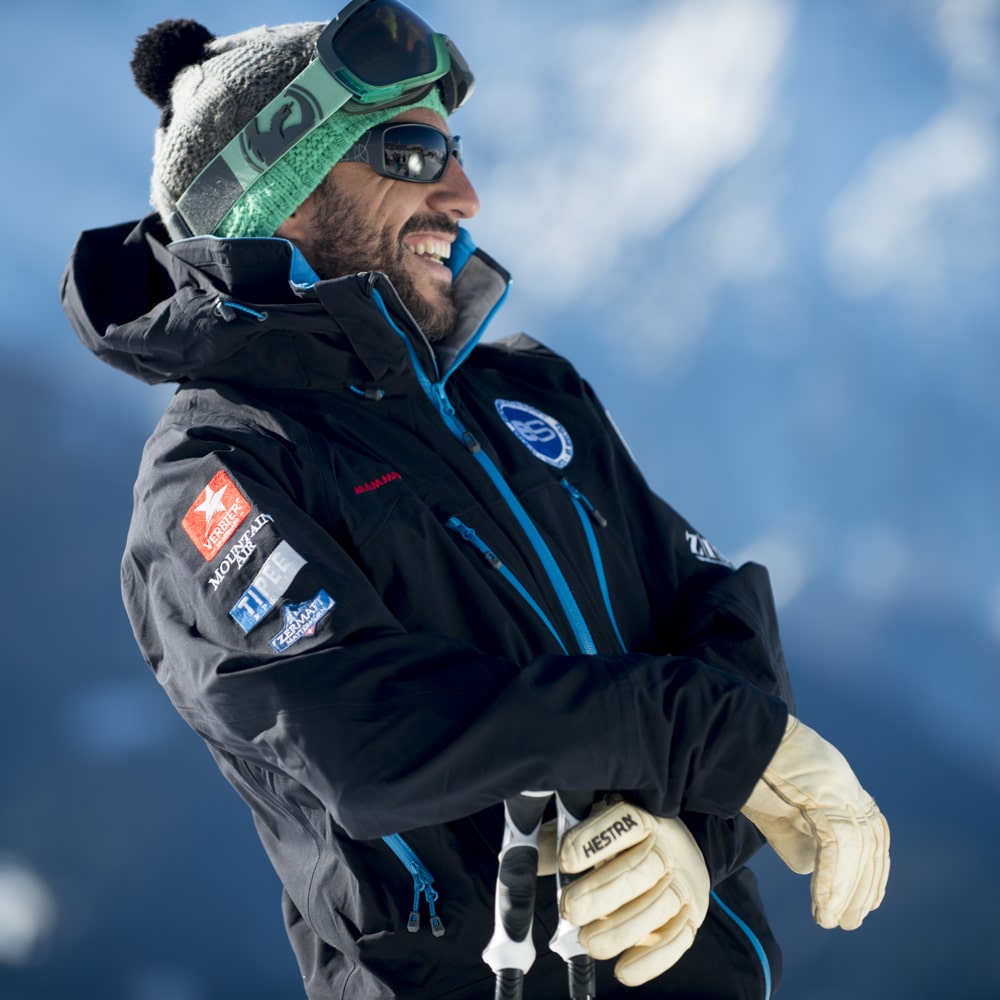
What qualifications do you need to be an off-piste instructor?
„In the Swiss system there are a lot of courses you need to pass; there are 3 levels of instructor and you need to reach the highest level, the Swiss Federal qualification. The courses include technique, teaching, second discipline, second language (in addition to one of the 3 Swiss languages; German, French and Italian), tourism and law, and off piste and avalanche safety.
In the off piste course we learn how to plan a route, how to identify dangers, and how to manage a group off piste.
Finally you need to complete a written project and then be interviewed about your project by a panel. Once you pass all the levels and the written project and interview, you can teach off piste under the conditions allowed by the law.“
Some quotes from other current Off-piste instructors.
„I want to share my love for the mountains with my clients. Away from the pistes, you have a feeling of freedom you don’t get anywhere else and I aim to transmit my love and respect for the mountains.“
„On the piste you are in a controlled environment but off piste you can’t take anything for granted. You need to stay clear psychologically and not be influenced by a charismatic person who wants to do something, but think about the risks and the right thing to do for yourself and with a clear head.“
„I always try to ask and encourage good questions and think with a clear head about the best thing to do in each moment. You need to remain humble and avoid doing things from habit. A very experienced guide said that you need to tune in to your “inner Indian” and I agree with this; you need to be connected to the elements and feel the right decision from day to day; it won’t be the same as the decision you made the day before.“
